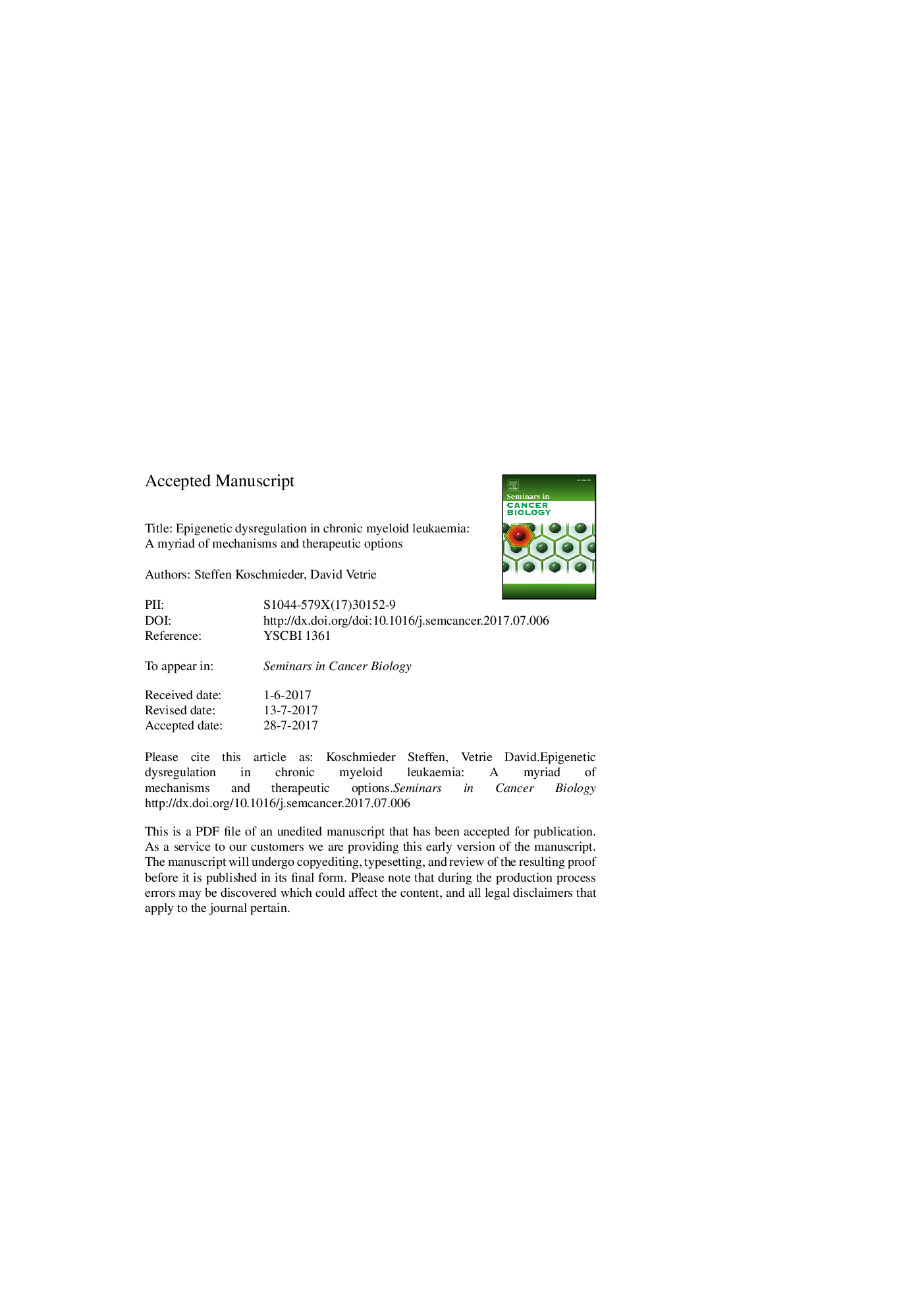| Article ID | Journal | Published Year | Pages | File Type |
|---|---|---|---|---|
| 8361752 | Seminars in Cancer Biology | 2018 | 58 Pages |
Abstract
The onset of global epigenetic changes in chromatin that drive tumor proliferation and heterogeneity is a hallmark of many forms of cancer. Identifying the epigenetic mechanisms that govern these changes and developing therapeutic approaches to modulate them, is a well-established avenue pursued in translational cancer medicine. Chronic myeloid leukemia (CML) arises clonally when a hematopoietic stem cell (HSC) acquires the capacity to produce the constitutively active tyrosine kinase BCR-ABL1 fusion protein which drives tumor development. Treatment with tyrosine kinase inhibitors (TKI) that target BCR-ABL1 has been transformative in CML management but it does not lead to cure in the vast majority of patients. Thus novel therapeutic approaches are required and these must target changes to biological pathways that are aberrant in CML â including those that occur when epigenetic mechanisms are altered. These changes may be due to alterations in DNA or histones, their biochemical modifications and requisite 'writer' proteins, or to dysregulation of various types of non-coding RNAs that collectively function as modulators of transcriptional control and DNA integrity. Here, we review the evidence for subverted epigenetic mechanisms in CML and how these impact on a diverse set of biological pathways, on disease progression, prognosis and drug resistance. We will also discuss recent progress towards developing epigenetic therapies that show promise to improve CML patient care and may lead to improved cure rates.
Keywords
Related Topics
Life Sciences
Biochemistry, Genetics and Molecular Biology
Biochemistry
Authors
Steffen Koschmieder, David Vetrie,
